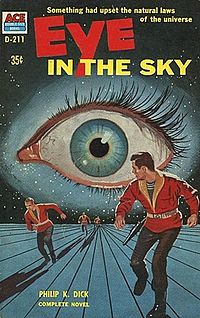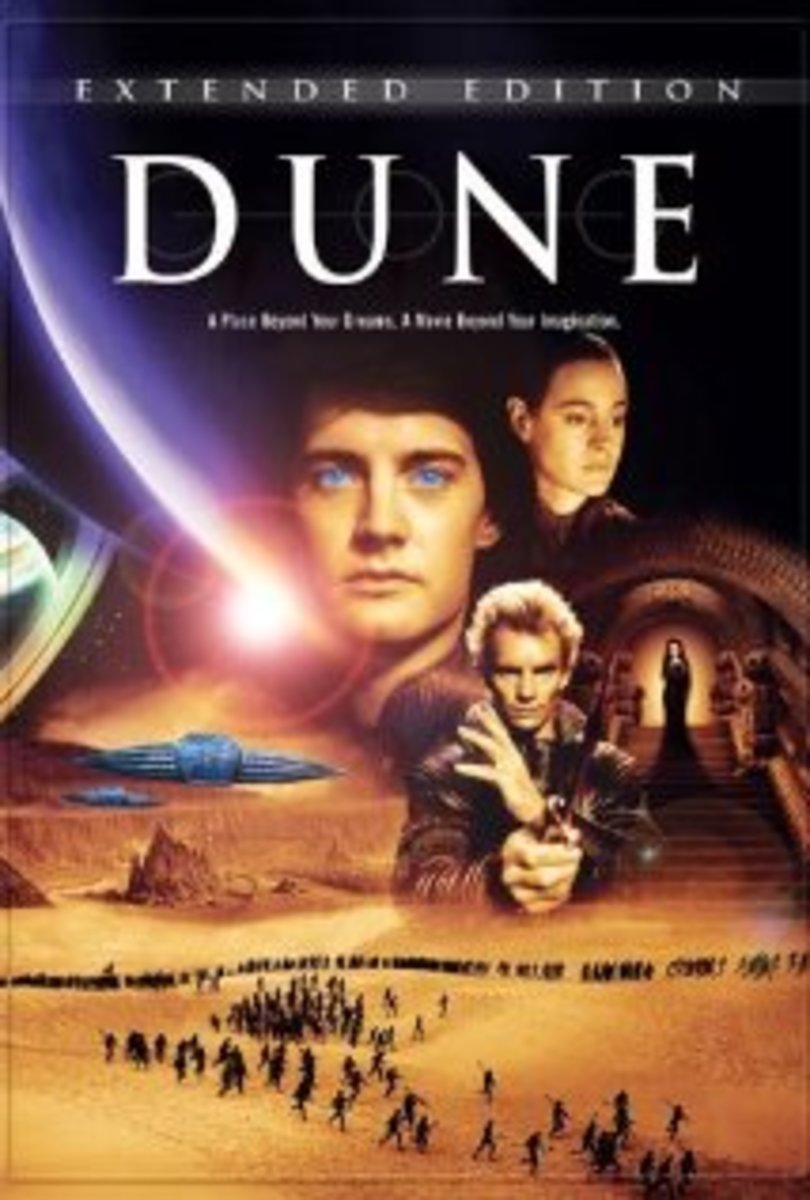- HubPages»
- Books, Literature, and Writing»
- Books & Novels»
- Fiction»
- Science Fiction & Fantasy Books
Eye In The Sky by Philip K. Dick: A Book Review

Here we are with another review of a Philip K. Dick novel. Mr. Dick was a science fiction writer, who wrote during the 1950s/60s/70s mostly. For those of you just landing in my little corner of the world for the first time, know that I have reviewed several of Mr. Dick's novels already.
For those of you who are not familiar with the way I do what I do, let me, quickly, sketch out the approach I take to writing book reviews.
First of all, when I write a book review, I do not place much weight on whether or not I personally liked it. I would like you to assume that if I am writing about the book, here, on HP, I like it, unless I go out of my way to say differently.
Secondly, what I try to do with a review, is do my best to 'reverse engineer' the book for you, to give you 'a look under the hood,' to show you how the book is put together; I want to show you how the story works and what it is trying to do.
Thirdly, when I discuss a novel, you will rarely see me write anything truly 'bad' or 'critical' about the book. My approach is to take each novel as a person's own work of art, with the understanding that art is, by its nature, a somewhat subjective affair. I adhere to this rule consistently, unless there is something glaringly wrong, which I rarely find. Otherwise, trying to make supposedly objective remarks about how someone conceived of and executed her own work of art, to my way of thinking, is like seeing a sunrise and rating it one-to-ten. If the book was published by a serious publisher (not a vanity press or 'self-published) I assume that it has cleared a certain threshold for quality; who am I to try to pick it apart based on what 'works' or 'doesn't work,' and so forth; especially when doing so would very likely ruin things by giving away too much of the plot to those of you reading the review? Follow? Good!
-------------------------------------------------------------------------------------------------------
Let's begin
Eye In The Sky by Philip K. Dick. What have we got here? What is going on? What is this book trying to do? What are we working with, (as they say)?
I am holding in my hands the paperback Vintage Books incarnation of this book---by the way, Vintage is, apparently, a division of Random House.
The book is two-hundred-forty-three pages long, which is the average length of Mr. Dick's novels. He was very much a writer of his time in that respect. As far as I can tell, writers of that era were more concise. If I had to hazard a guess, I would say that the era of the telephone book-sized mega novel dates back to the 1980s sometime. But that is neither here nor there.
The First Thing...
The first thing that I like to stress about Mr. Dick's work is that it is NOT hard science fiction. What I mean by that is that, for Dick, the science and technology-apparatus that appears at the beginning of the story does not remain integral to the story throughout. I should say that the science fictiony (I just invented the word 'science fictiony') apparatus serves the function of launching the reader into whatever imaginative, philosophical, metaphysical, or psychological realm that Dick wants to launch the reader's mind into.
After you are launched into that realm, the 'science fictiony' apparatus withdraws and the story functions rather on the level of what I think of as 'magical realism,' as the core component of, what to my mind is, 'speculative fiction.'
I'll explain what I mean in just a minute. But these are just general tendencies of Mr. Dick's work that I am pointing out to you.
--------------------------------------------------------------------------------------------------------
Hey you! Yeah, 'you,' the one whose reading this. Think of yourself and, say, four other friends of yours. Do you ever wonder what the world would look like to you if you temporarily inhabited the point of view of each of your friends, based on what you know about each of them? Furthermore, what kind of worlds do you think you would inhabit, if you could inhabit the psycho-fantastical 'reality'-generating apparatus of each of your friends?
Do you think you would relish the chance to 'walk a mile in the shoes' of others, to know your friends as you never knew them before? Would you like to see the way the world would run if each one of them was 'God'? Or do you think, now, that, perhaps, 'ignorance is bliss,' after all?
Well, this is the exciting opportunity and challenge (or, I should say, 'Gauntlet Run of Death') faced by the companions in this story. The thing that launches the companions, and therefore, us the readers, is an accident that happens with something called a 'Belmont Bevatron.'
Exactly what a 'Belmont Bevatron' is and does is unimportant. It merely serves as the launching pad into the fascinatingly absorbing question I just alluded to.
Something Else To Expect
Let me give you another general feature of Philip K. Dick's work, which is applicable to the novel we're talking about here. Mr. Dick takes you on wild, wild rides by way of wacky, wacky plots. The action tends to be anchored by one or two characters who are perfectly 'normal,' 'reasonable,' 'balanced,' and quite intelligent, which is essential.
This 'Steady Eddie' is quite indispensable. He or she (or a small group of 'they') can navigate the circumstances successfully by understanding the nature of the wackiness they have been thrust into by whatever super wacky people and/or forces that have thrust the companions into said wackiness. The, let's call them, 'anchor' characters take us on the ride and make sure we all reach sanity again, that we all come out okay on the other side, as it were.
One Last Thing
I don't want to give the plot away and I do not intend to. But I will give you this: There is a little bit of 'mystery' we are confronted with near the end. You see, this book was published in 1957; and as you know, the 1950s were a time when America---depending on how one defines the term---was looking for Communists under every rock.
Therefore, the mystery is this: Just exactly who is it, among our companions, who, deep in his/her heart, fantasizes about a 'Red' world, where Trotsky and Lenin are the equivalent of Olympian Gods? Hint: It is not the person you think it is!
That'll do it, I think. Thank you so much for reading this!
Take it easy!








